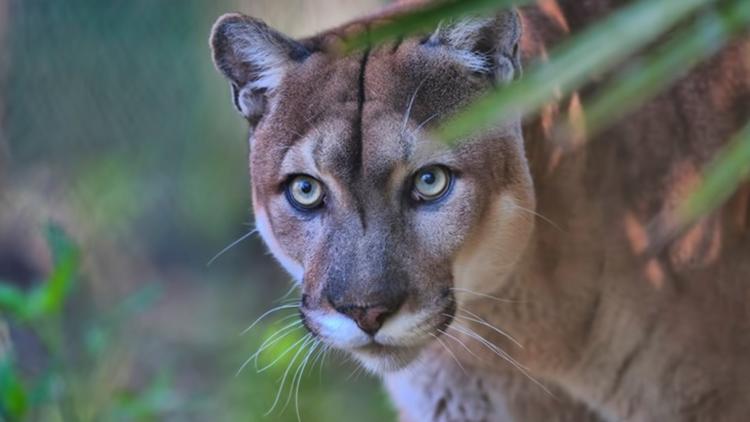COLLIER COUNTY, Fla. — A Florida panther was hit and killed by a vehicle Friday, marking the 30th death this year for the endangered species, according to the Florida Fish and Wildlife Conservation Commission (FWC).
The state hasn't recorded this many panther deaths since 2018, state data shows.
The 3-year-old male panther was struck on State Road 29 in Collier County. It was the third panther killed by a vehicle just this month, and the 23rd this year.
On Sunday, Nov. 17, a female panther was struck and killed near I-75 Mile Marker 119 in Lee County. Nine days before that, another female panther was struck along Corkscrew Road, one mile south of State Road 82 in Collier County.
The number of panther deaths so far in 2024 is up exponentially from 2023, which saw 13.
Vehicles are the leading cause of panther deaths this year
FWC attributed more than 23 of the 30 panther deaths to vehicles this year. That's more than 75%.
Data shows at least one panther has died every month in 2024, with April and September each recording five panther deaths, the most out of other months this year.
“It hurts my soul to think of the painful death this beautiful, endangered cat suffered on our roads,” said Elise Bennett, the Florida and Caribbean director at the Center for Biological Diversity regarding the 30th panther death.
The Center for Biological Diversity is a nonprofit conservation organization that works to protect natural wildlife and wetlands through advocacy.
More than half of the deaths were reported in Collier County, which sits on the southwestern tip of the state and includes the city of Naples. The county is also home to the Florida Panther National Wildlife Refuge.
Panthers, Florida's state animal, are listed as endangered under the Endangered Species Act of 1973, making it illegal to harm or harass the species.
Panthers used to range throughout the southeastern United States and could be found as far west as Arkansas and as far north as South Carolina, according to FWC. Today, only approximately 120 to 230 adults exist, with most reported in a small area of southwestern Florida.
Wildlife advocates say one of the greatest threats to the species is habitat loss, which they attribute to human development. Bennette believes panther deaths attributed to vehicles will continue as long as roadways encroach on their habitats.
“It’s even more heartbreaking that this is just one of dozens of Florida panthers lost every year to speeding vehicles,” Bennett said. “With an onslaught of proposed developments in our panthers’ last home, I sadly expect to see even more senseless deaths as traffic floods into southwest Florida’s last wild places.”
FWC, the Florida Department of Transportation and the U.S. Fish and Wildlife Service have considered the need for more wildlife crossings and fencing as more roads are built throughout the area, FWC's website states.
Bennett supports implementing more wildlife crossings in areas of need, which FWC says has "sharply reduced" the number of panther deaths caused by vehicle crashes.
“We need to curb reckless development and build wildlife crossings to protect these incredible animals from becoming roadkill,” she said.



